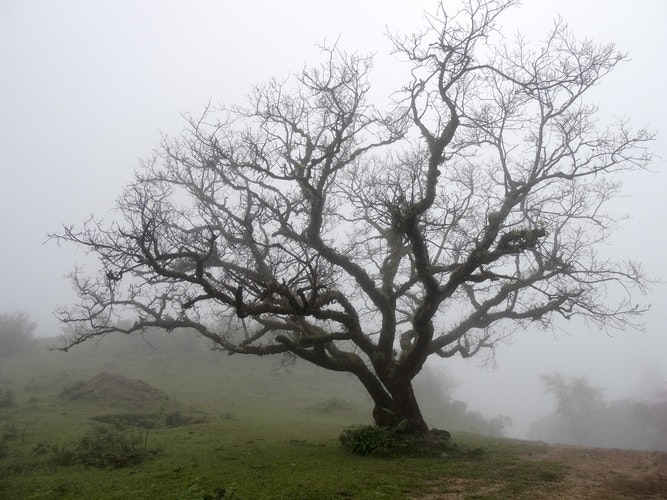Climate change is a huge environmental challenge the world is gradually recognizing and addressing. Over the past two centuries, humans have affected the natural balance of the planet. We’ve burnt fossil fuels (e.g. coal, gas, oil), over-farmed methane-producing livestock, and cut down millions of trees without planting new ones.
Tree Response to Atmospheric Change
Trees naturally absorb carbon dioxide from the air. As they become less plentiful, carbon dioxide levels increase, adding to atmospheric greenhouse gases. Even a minor increase in temperature can put serious stress on trees. Climate plays a crucial role in tree health and vigour. Healthy trees can deal with most insects and disease on their own. As our environment changes, many trees become unhealthy and stressed. Even the smallest threat (like bark beetles) can cause serious damage to a tree’s overall health.
 Souce:Natural Resources Canada
Souce:Natural Resources Canada
Predicting which tree species will be affected is challenging; the varying aspects of climate change are difficult to anticipate. Similar species in the same location can respond in various ways. Additionally, young trees respond differently to climate change than mature trees of the same species.
Tree Growth and Fecundity
An 18-year study of 27,000 trees (funded by the National Science Foundation) found that climate change had a greater impact trees’ growth and fecundity (the ability to generate viable seeds) than expected. The results of this study can help us better understand which tree species are more vulnerable to climate change and the reasons for the adaptations.

“In a sense, what we’ve done is an epidemiological study on trees to better understand how and why certain species or demographics are sensitive to variations and in what way.” – Lead author James Clark (Duke University)
Clark and his team of scientists obtained data by measuring and monitoring the growth, mortality, and fecundity of each of the study’s 27,000 trees at least once every three years. The data gathered are compiled in an archive of more than 280,000 “tree years” of data. The scientists used a specially-designed analysis for the effects of climate change on tree species over time.
“By quantifying the effects and relative importance of competition between species and climate variables, including impacts of fecundity, over both time and space, the model we’ve developed addresses the needs and can be used to guide planning.” – James Clark
We have a responsibility to our trees, whether they are in our gardens and yards, on city property, or in the forest canopies. If you need help for trees on your property, call an arborist for help.
Protect your trees from climate change by calling Caledon Treeland for assistance and tree care in Toronto and central and southern Ontario. We also sell high-quality trees and will plant and maintain them for you. Call us at (905) 880-1828 or send us an email message for more information.

